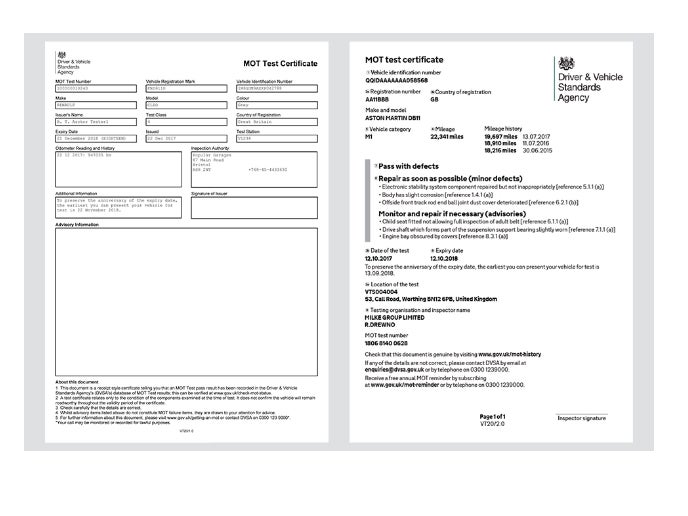New MOT test: What changes are being introduced to the three-year health check for cars?
Driver and Vehicle Standards Agency revising process by which mechanics assess whether vehicles are roadworthy

Your support helps us to tell the story
From reproductive rights to climate change to Big Tech, The Independent is on the ground when the story is developing. Whether it's investigating the financials of Elon Musk's pro-Trump PAC or producing our latest documentary, 'The A Word', which shines a light on the American women fighting for reproductive rights, we know how important it is to parse out the facts from the messaging.
At such a critical moment in US history, we need reporters on the ground. Your donation allows us to keep sending journalists to speak to both sides of the story.
The Independent is trusted by Americans across the entire political spectrum. And unlike many other quality news outlets, we choose not to lock Americans out of our reporting and analysis with paywalls. We believe quality journalism should be available to everyone, paid for by those who can afford it.
Your support makes all the difference.Significant changes are being introduced to the MOT test for cars, vans and motorbikes from this weekend.
The Driver and Vehicle Standards Agency (DVSA) is revising the automotive health check to incorporate new defect types, stricter rules for diesel emissions and exemption for some vehicles over 40 years old.
The changes will come into effect from Sunday 20 May on England, Wales and Scotland, but not Northern Ireland.
Here's everything you need to know.
Defects will now be placed in three categories
Faults will now be categorised as either dangerous, major or minor.
Cars will fail the MOT if they reveal a defect that poses "a direct and dangerous risk to road safety or has a serious impact on the environment" (dangerous) or if the fault "may affect the vehicle’s safety, put other road users at risk or have an impact on the environment" (major).
Cars with a fault posing "no significant effect on the safety of the vehicle or impact on the environment" will be regarded as minor and will pass, with the stipulation that they should be repaired as soon as possible.
Vehicles will also pass if a potential future fault is identified - with a caution to monitor it - and if it continues to meet minimum legal standards.
Stricter tests on diesel emissions
Diesel emission cars will be failed with a major fault if:
- Coloured smoke is detected coming from the exhaust
- The mechanic spots evidence that the diesel particulate filter (DPF), which stories exhaust soot, has been tampered with.
New checks being introduced
Mechanics carrying out the test will be checking to see whether:
- Your tyres are clearly under-inflated
- Your brake fluid has been contaminated
- Any fluid leaks pose a risk to the environment
- Your brake pad warning lights work and if any brake pads or discs are missing
- Your reversing lights on vehicles first used from 1 September 2009 still work
- Your headlight washers on vehicles first used from 1 September 2009 still work (if they have them)
- Your daytime running lights on vehicles first used from 1 March 2018 still work (most of these vehicles will not be due for an MOT until 2021)
The certificate is being revised
The layout of the certificate will be modified to make it clearer and easier to read.

Vintage models more than 40 years old no longer need testing
Cars, van and motorcycles more than 40 years old will no longer need an MOT if they have not been substantially modified.
Currently, only vehicles built before 1960 are exempt.
You can check the date of your car's registration online.
Further information
Maximum fees garages can charge for carrying out the test will not change and you can still be fined up to £1,000 for driving without a valid MOT.
Vehicles will still be due for their first MOT after three years (and then once-a-year after that), despite the government considering an extension to four in January.
Free reminders that your vehicle is due for a test can be received by text or email a month in advance by registering with the gov.uk.
Join our commenting forum
Join thought-provoking conversations, follow other Independent readers and see their replies
Comments